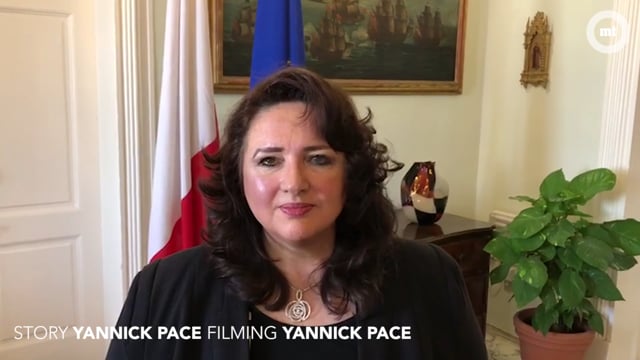[WATCH] Law on the mainstreaming of gender equality to be proposed by government
Equality minister Helena Dalli said the government would be taking its efforts to create a fairer and more equal society to the next level


The Equality Ministry has launched a public consultation on a strategy on gender equality mainstreaming, which will lead to the government presenting a law in parliament.
At a press conference on International Woman’s Day, Equality Minister Helena Dalli said that following the introduction of a number of measures aimed at women – including the ratification of the Istanbul convention, free childcare and a mechanism for private sector employers to share the burden of maternity leave - the government now wanted to “take equality to next level”.
“We are taking equality to the next level...now we are looking to have issues of equality addressed on all levels of society,” Dalli said.
The minister was accompanied by women occupying key roles within the various departments falling under the ministry’s remit and expressed her satisfaction at the fact that over 50% of decision-making roles were occupied by women.
Their presence at the launch was intended to send a message to society, that it needed to do better and exploit the potential that everyone in society has to offer.
She said they were invited to send the message to society that it needed to exploit the potential of all those in society.
“We’re not saying departments should only be run by women but that they should be run by both women and men,” she said adding that both perspectives were valuable.
“[With more equal representation] decisions will have the benefit of having the perspective of both a man and a woman,” she said.
Dalli noted that her ministry had set up the Consultative Council for Women’s Rights in 2017, consisting of representatives of women’s rights civil society organisations, in order to serve as a platform for the development of policy and legislative proposals.
The council’s representatives, she said, were directly involved in various areas of society, and could offer better insight on issues that needed addressing.
Medium to long-term vision for gender equality measures
The strategy is intended to establish a framework for the advancement and empowerment of women in society while providing policy direction to the government for it to ensure “high standards in this area”.
Dalli said that, following an extensive consultation with the Council, an action plan focusing on eight main pillars, based on the European Institute for Gender Equality’ Gender Equality Index, had been drawn up.
The eight pillars are: right to equal treatment; equal access to opportunity and combatting the gender pay gap; financial independence; equal access and opportunity to knowledge and education; co-responsibility and balance of work, private and family life; equal opportunities for positions of authority, as well as health and general wellbeing; and intersectionality – “addressing women’s multiple identities and the forms of discrimination against them”.
Dalli said the law which is to be proposed will aim to amend legislation that currently retains differential treatment for women and men while introducing provisions for the elimination of the gender pay gap, as well as the setting up of a structure to “mainstream gender equality in society as a whole”.
Asked what sort of provisions the law might include, Dalli pointed out that her ministry had encountered situations were women had discovered that they were being paid significantly less than a number of male counterparts, which had been addressed through the cooperation of the employer.
One example of what the law might include, she said, there would be a structure that could formalise this process and bring the private sector closer to the public sector where there is a significantly smaller wage gap between men and women.


.png)

.png)



.jpg)




.jpg)






.png)


